The entrepreneur leading a revival of her hometown
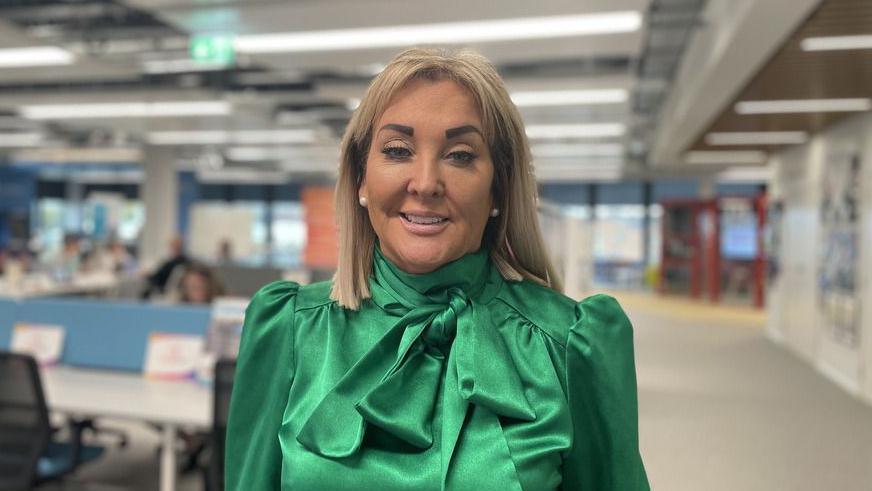
Marie Macklin grew up in Onthank in Kilmarnock
- Published
When Diageo announced a plan to close the Johnnie Walker bottling plant in Kilmarnock, Marie Macklin was at the forefront of a campaign to save it.
In 2009 she was among 20,000 people who marched through her hometown calling for the factory and 700 jobs to be saved.
But now the businesswoman, who grew up in the nearby Onthank estate, is leading the regeneration of the site.
Her plans for the £95m HALO development include 210 new homes, a skatepark, a "wave-surf" leisure centre, and a "vertical farm".
Whisky sour: The Johnnie Walker closure 10 years on
- Published1 July 2019
Ms Macklin's father was a bricklayer who eventually started his own construction business, while her mother was a hosiery worker.
She grew up on an estate that would later become the setting for BBC Scotland's controversial fly-on-the-wall documentary The Scheme.
The show highlighted drug-taking on the estate but some condemned it as "poverty porn", while residents said it unfairly represented the area.
"It was a great community when I was brought up there in the 70s and it's a great community now," said Ms Macklin, who still has relatives in the estate.
She "was not the most articulate" at Kilmarnock Academy and was held back in reading and writing. She was in her 30s when she discovered she was dyslexic.
"I think that's made me the person that I am because when I see kids struggling, that was me," she said.
"So I'm all about putting something back into the communities."
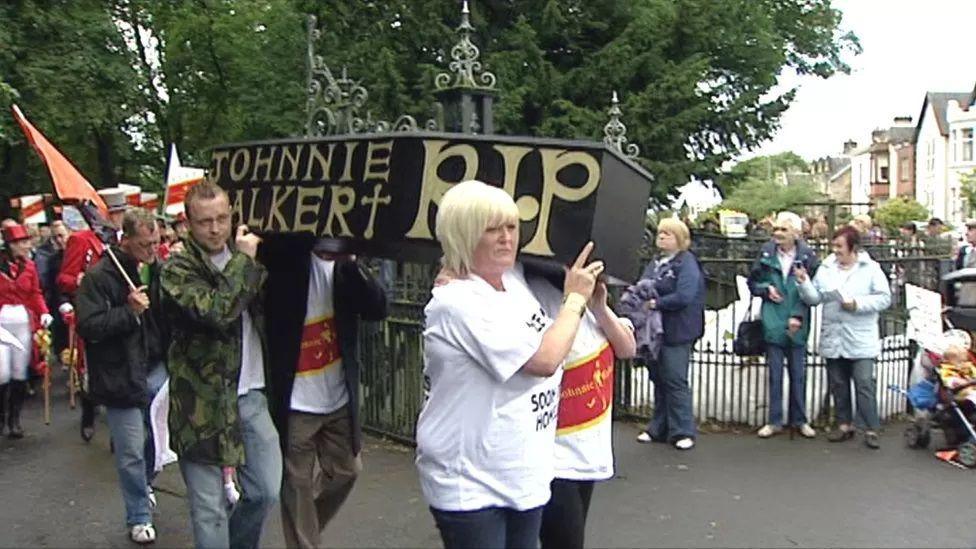
More than 20,000 people marched through Kilmarnock in protest over the closure of the Johnnie Walker plant in 2009
After leaving school, Ms Macklin moved away to study accountancy and economics at Glasgow Caledonian University - then known as Glasgow Polytechnic - before working in the finance sector in the City of London.
"But my ethos has always been my hometown," she added.
She told BBC Scotland she became seriously ill in her early 30s after experiencing recurring pain and health problems.
One day she collapsed and was rushed into emergency surgery with internal bleeding.
After being in pain for years, she was finally diagnosed with endometriosis.
"I nearly lost my life," she said. "And that's what brought me back home."
She said the illness changed her life forever and prevented her from having children.
As she steadily recovered, she started working part time for The Klin Group, the property development business set up by her father John Dick as a construction business in 1988.
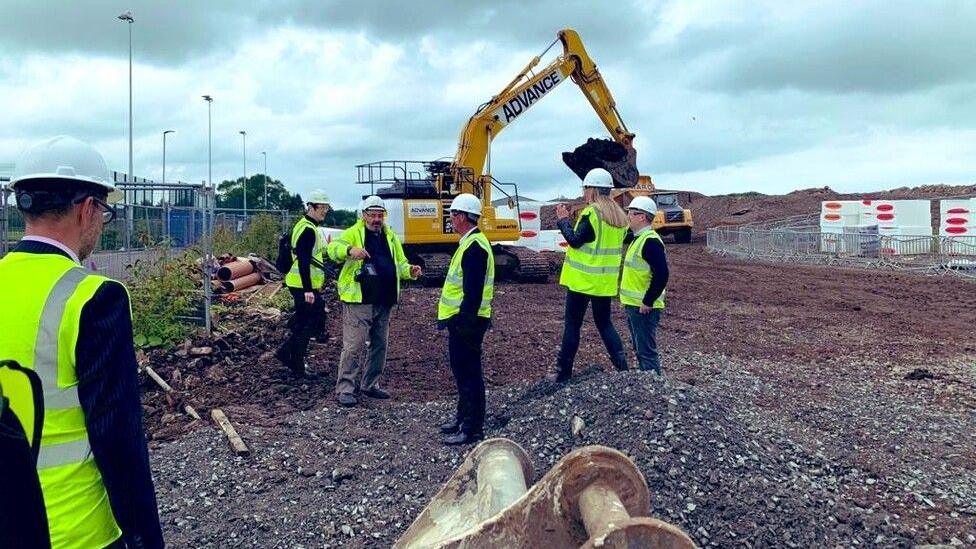
Marie Macklin grew up helping her dad on building sites
"Coming home made me think about how, growing up in an industrial town, the big businesses were Stoddart's Carpets, Andrew Barclay Motors, Massey Ferguson tractors, Johnnie Walker whisky," she said.
"And in the 70s and the 80s we saw complete decline, not just in Kilmarnock, but a lot of industrial towns."
According to the 2020 Scottish Index of Multiple Deprivation (SIMD), hundreds of homes in Kilmarnock have some of the highest poverty levels in the country.
Ms Macklin took over the business when her father retired and her first deal brought the first Morrisons supermarket to Scotland. It opened in Kilmarnock in 2004.
"I knew if I could get class one food retail consent, that would give me the money to roll-out and reinvest in all the old buildings," she said.
"Because they're very difficult to develop and you don't get grants."
But in 2009, Kilmarnock's last big employer Diageo decided to close the Johnnie Walker bottling plant to cut costs.
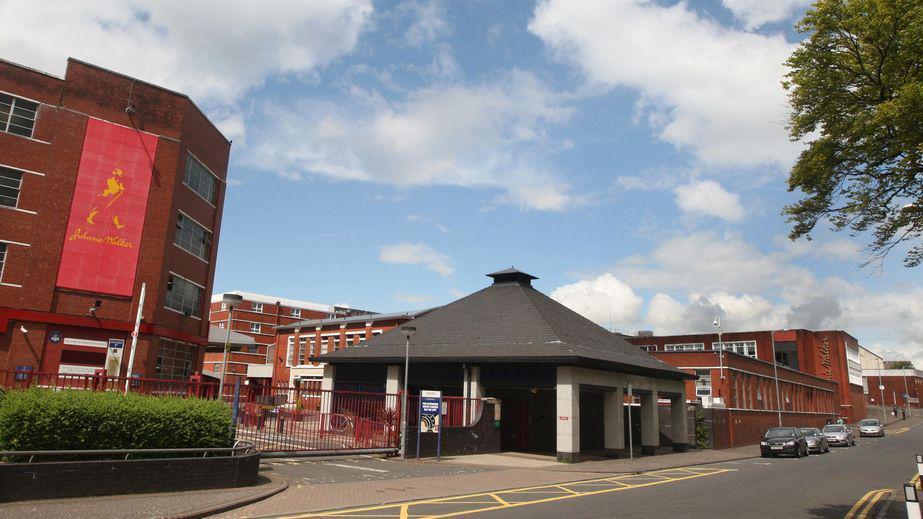
Hundreds of locals worked at the Johnnie Walker bottling plant in Kilmarnock
The whisky had been linked to the town for the more than 190 years.
"It was going to kill the town centre," Ms Macklin added.
She joined a "Make it Kilmarnock" task force which was set up to try and alleviate the economic impact that the closure would bring.
And she was at the front of a march of 20,000 people through Kilmarnock to try and save the factory and its jobs.
But in 2012 the plant was finally wound down and closed, and production moved to Shieldhall on the west side of Glasgow, and to Leven in Fife.
Of the 700 jobs lost in the area, the majority of the workforce chose redundancy over relocating.
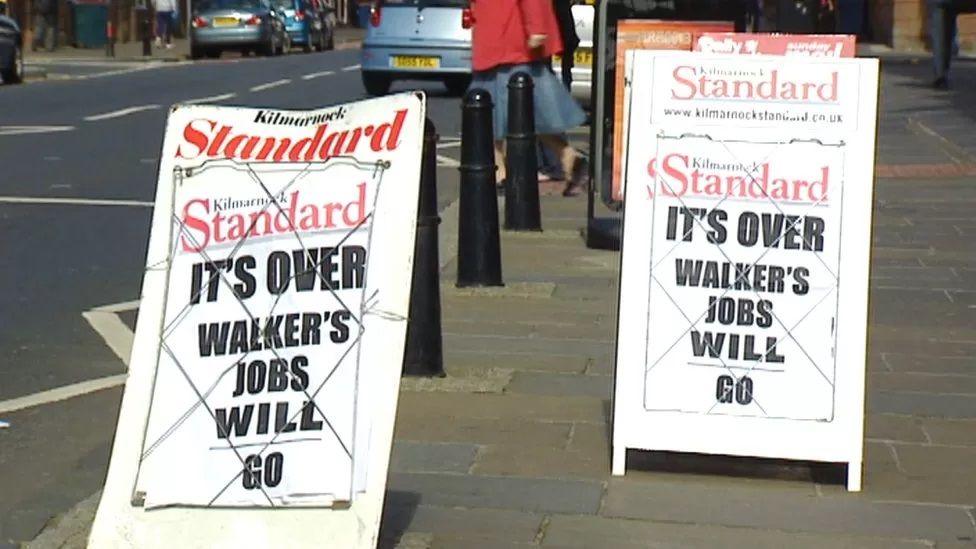
News of the closure was a crushing blow to the town
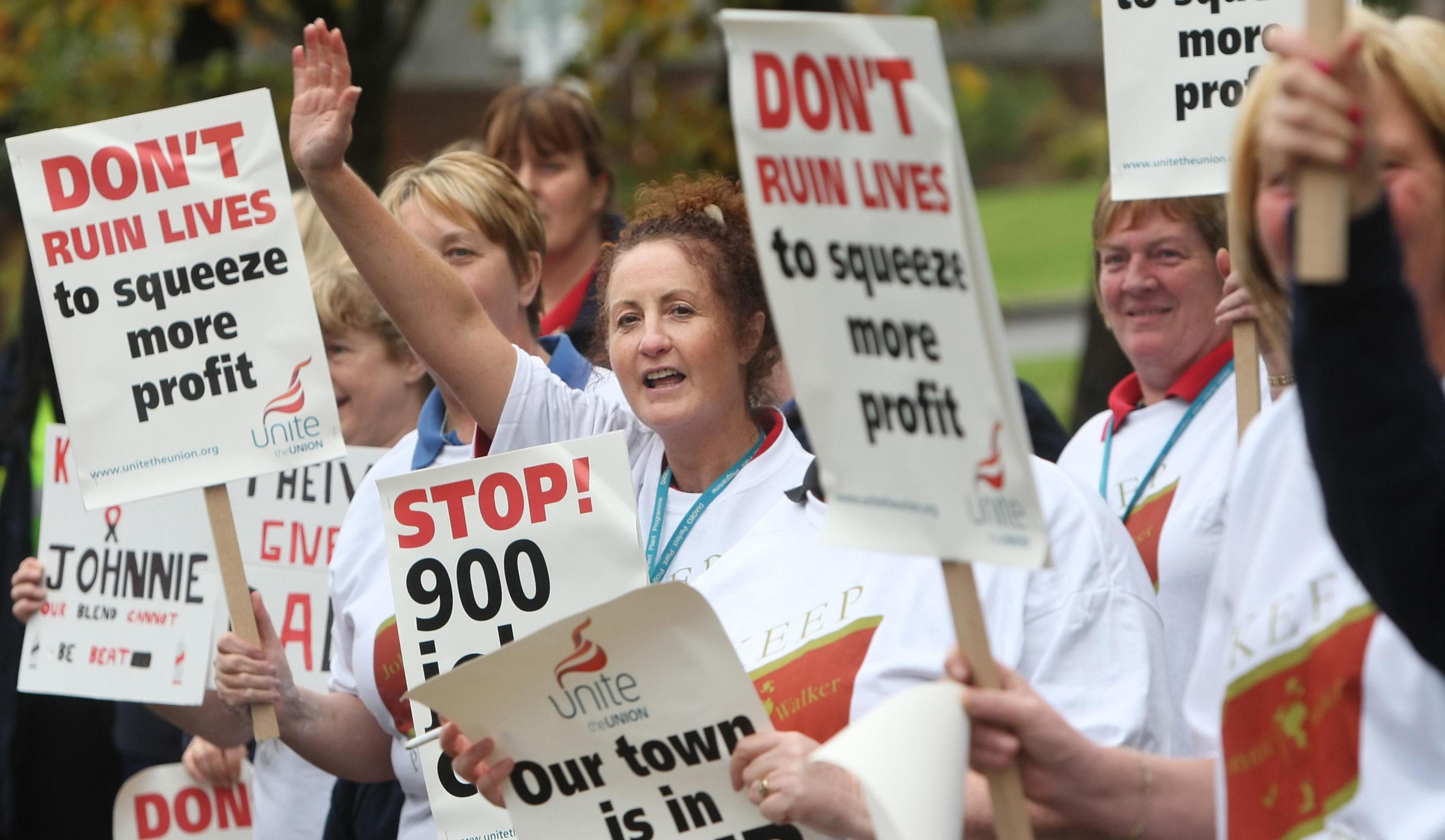
Workers fought back against the large numbers of planned job cuts
Ms Macklin negotiated with Diageo to take control of the 28-acre contaminated site for £1.
A third of the land would be used for a new £50m Ayrshire College which merged three local colleges.
Ms Macklin and her team called for community input and held consultations on what could be built on the land.
This led to an ambitious project called the HALO Digital, Cyber and Innovation Park.
The first phase started in 2019 and built a business innovation hub which opened two years later, and a second phase which includes building smart homes and a skatepark will begin next year.
"Our towns were formed by the makers and the doers and the entrepreneurs," she said.
"What's to stop us doing that now in our towns?
"We have really good folk, they just need support and that's what what we do."
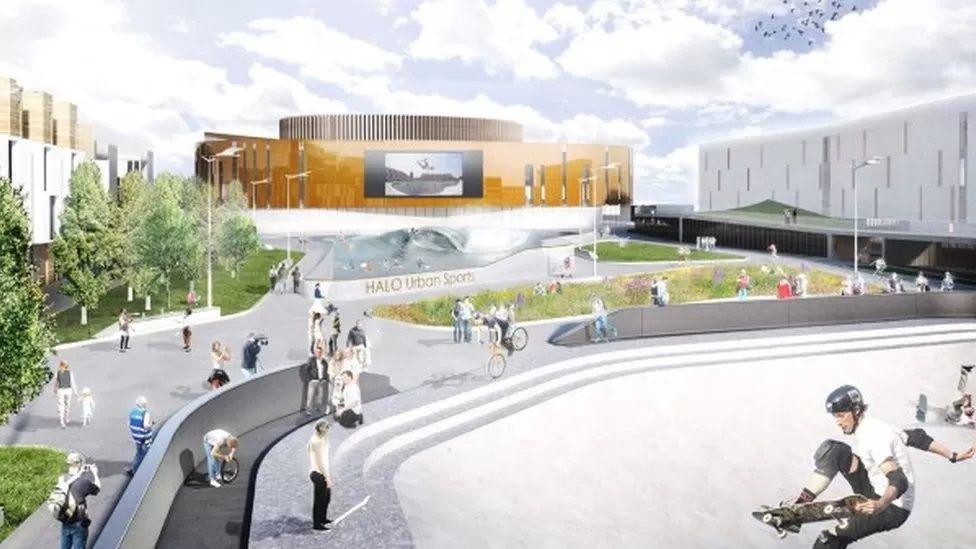
Artist impression of revamped Johnnie Walker site
She hopes the Kilmarnock development could be concluded within three years.
And there are plans to build three more HALO sites across the UK before rolling out the project internationally.
"I had uncles and aunts that worked in Diageo. It was 700 job losses, but I think 50% of them were part time jobs," she told BBC Scotland.
"What we're trying to achieve here is higher income jobs."
In 2014, Ms Macklin was awarded a CBE in the Queen's 2014 New Year's Honours List for services to economic regeneration and entrepreneurship in Scotland.
"I was one of the kids that saw my town die at the hands of policy, politics and a lack of funding," she said.
"Why should our kids here not reap the benefits that other kids get in big major cities?"
Get in touch
What stories you would like BBC News to cover from Glasgow and the west of Scotland?